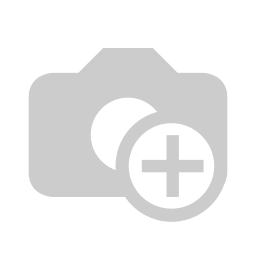Executive Secretary

19th International Symposium of Electrical Engineering
SIE 2021
Abstract
In the current scenario of non-presence imposed by COVID-19, laboratories are among the most affected activities. The discipline of electrical circuits uses simulation to develop virtual laboratories, but the simulators recommended by the bibliography are proprietary software. The use of these under pirated licenses is not only a legal but also an ethical problem. Facing this problem, it is attractive to investigate what alternatives free software offers. To implement a system of virtual experiences based on free software tools for the simulation of electrical circuits as support the teaching-learning process of students in the second year of the electrical engineering faculty. Firstly, an analysis on the simulators traditionally used and recommended by the bibliography was carried out. Then free softwares were selected that, due to their potentiality can replace proprietary simulators from the teaching point of view. Finally, virtual experiences were planned according to the different themes. A system of virtual experiences was implemented that cover topics from the analysis of simple resistive circuits, transient state, circuits stimulated with alternating current and frequency response, among others. The convenience of using free software as an alternative to proprietary software in computer-aided circuit analysis for teaching purposes is evidenced.
Resumen
En el actual escenario de no presencialidad impuesto por la COVID-19, los laboratorios se encuentran entre las actividades más afectadas. La disciplina de circuitos eléctricos emplea la simulación para desarrollar laboratorios virtuales pero los simuladores recomendados por la bibliografía son software propietario. La utilización de estos bajo licencias piratas supone un problema no solo legal sino también ético. Ante esta problemática resulta atractivo investigar qué alternativas ofrece el software libre. Implementar un sistema de experiencias virtuales basadas en herramientas de software libre para la simulación de circuitos eléctricos como apoyo al proceso de enseñanza aprendizaje de los estudiantes del segundo curso de facultad de ingeniería eléctrica. Primeramente se realizó un análisis de los simuladores utilizados tradicionalmente y recomendados por la bibliografía. Luego se seleccionaron los softwares libres que por sus potencialidades pueden sustituir a los simuladores propietarios desde el punto de vista docente. Finalmente se planificaron experiencias virtuales según los diferentes temas.Se implementó un sistema de experiencias virtuales que abarcan temas desde el análisis de circuitos resistivos simples, estado transitorio, circuitos estimulados con corriente alterna y respuesta de frecuencia, entre otros. Se evidencia la conveniencia de la utilización de software libre como alternativa ante el software propietario en el análisis de circuitos asistido por computadora con fines docentes.
About The Speaker

Prof. Yanosky Hernández García










